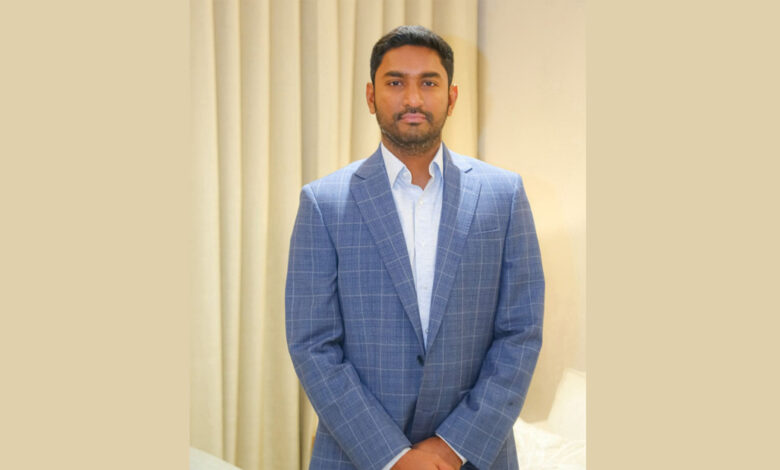The Role of AI in Predictive Healthcare: Preventing Diseases Before They Strike

Attributed to – Mr Tejasvi Rao Veerapalli CEO Apollo Hospitals Teleangana Region
For decades, healthcare has largely been reactive — treating patients after symptoms emerge. But a paradigm shift is underway. With Artificial Intelligence (AI) at the forefront, healthcare is moving toward a predictive model where diseases can be identified, prevented, or managed well before they manifest. This transformation has the potential to save millions of lives, reduce costs, and fundamentally redefine the patient experience.
From Reactive to Predictive Care
Traditional medicine focuses on diagnosing illnesses based on visible symptoms and then recommending treatment. While effective in many cases, this approach often comes too late, especially for chronic conditions like cancer, diabetes, and cardiovascular disease, where early detection is crucial.
AI enables predictive healthcare by analyzing vast datasets — from electronic health records (EHRs) and genetic information to wearable device metrics and lifestyle data. These insights help doctors anticipate risks, detect early warning signs, and recommend interventions that can prevent diseases from occurring altogether.
Harnessing the Power of Data
Every individual generates an enormous amount of health-related data. Wearables track heart rates, sleep cycles, and daily activity. Hospitals capture diagnostic imaging, lab results, and treatment histories. Genomic sequencing offers deep insights into predisposition to diseases. Yet, without AI, much of this information remains underutilized.
Machine learning algorithms can process these massive datasets at scale, identifying subtle patterns invisible to the human eye. For example, AI can detect irregular heart rhythms that might signal the early onset of atrial fibrillation, or changes in blood sugar trends that suggest a patient is at risk of developing type 2 diabetes. By turning raw data into actionable insights, AI empowers healthcare providers to intervene before minor anomalies become life-threatening conditions.
Early Detection of Chronic and Critical Illnesses
One of AI’s most impactful applications is in the early detection of serious illnesses. AI-enabled imaging tools can analyze radiology scans with remarkable accuracy, often spotting tumors or abnormalities earlier than radiologists. In oncology, predictive models help identify patients at high risk of cancer recurrence, enabling closer monitoring and timely intervention.
Similarly, predictive analytics in cardiology can flag patients likely to suffer from heart disease based on lifestyle, genetic, and physiological markers. For neurodegenerative conditions like Alzheimer’s, AI models can analyze speech, behavior, and cognitive test results to predict the likelihood of disease years before symptoms become evident.
Personalized Preventive Care
Predictive healthcare is not just about identifying risks but also tailoring preventive strategies to individuals. By combining genetic information with lifestyle and environmental data, AI can suggest highly personalized recommendations. For instance, an individual genetically predisposed to hypertension might receive customized diet plans, exercise regimens, and stress-management techniques.
This personalization increases patient engagement and adherence to preventive measures, as recommendations are directly relevant to the individual’s health profile. The result is a more proactive, patient-centric healthcare system.
Reducing Healthcare Costs
The financial implications of predictive healthcare are profound. Chronic diseases account for nearly 70% of healthcare costs worldwide. By catching diseases early or preventing them altogether, AI has the potential to significantly reduce hospital admissions, invasive treatments, and long-term care expenses. Insurance companies are already exploring AI-driven models to identify high-risk individuals and incentivize preventive care, creating a win-win for both patients and payers.
Challenges on the Horizon
Despite its promise, AI-driven predictive healthcare faces challenges. Data privacy and security are paramount concerns, as sensitive health information must be safeguarded against misuse. Additionally, biases in algorithms can lead to disparities in healthcare outcomes if not carefully addressed. There is also the challenge of integrating AI insights into clinical workflows, ensuring that physicians trust and adopt these tools effectively.
The Future of Healthcare
The vision of predictive healthcare is not science fiction — it is unfolding now. As AI technologies become more advanced and accessible, the ability to foresee and prevent diseases will become a cornerstone of modern medicine. However, human expertise remains irreplaceable. AI should be seen as an enabler, augmenting doctors’ capabilities rather than replacing them.
By combining technological precision with human empathy, predictive healthcare powered by AI offers the possibility of a healthier, longer, and more cost-efficient future — where prevention truly becomes the best cure.




